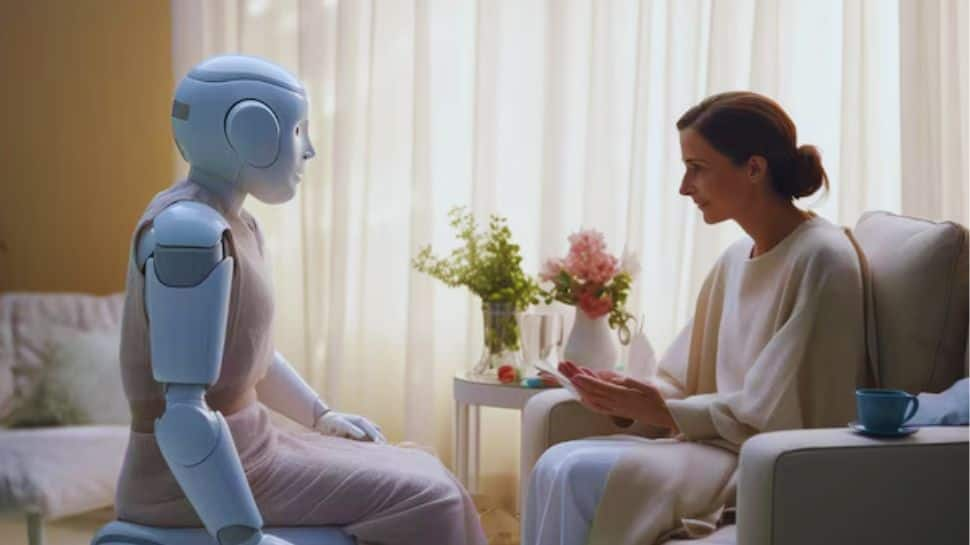Today, where Gen Z are grappling with rising stress and anxiety, AI-driven tools are emerging as a new kind of support system. Young adults face intense pressures and still they have limited access to traditional therapy so, AI offers a safe, stigma-free space to share their thoughts and emotions. Young people are increasingly turning to AI to “talk” through their struggles, opening up about stress, loneliness, and job or academic pressures in ways they might not feel comfortable doing with a human. While AI can help track moods, suggest exercises, or flag early signs of distress, experts stress that it cannot replace the empathy, understanding, and nuanced judgment of a trained therapist. Instead, AI acts as a first line of support, a listening ear that helps bridge the gap until professional help is accessible.
AI as the First Mirror for Gen Z Emotions
Anil Agarwal, CEO and Co-founder of InCruiter, explains, “AI won’t replace therapists but it’s quietly becoming the first mirror for Gen Z emotions… they disclose stress cues, pauses, and sentiment shifts more openly than in human-led calls.” This highlights that AI can help identify early signs of stress, burnout, or job-related anxiety, serving as an initial listener at scale. According to Agarwal, the key advantage of AI is reflection where technology mirrors emotional patterns to provide insights that might otherwise go unnoticed.
How Digital Therapy Helps Gen Z
According to Dr. Sameer Malhotra, Principal Director at Max Super Speciality Hospital, AI tools are giving Gen Z “stigma-free support. For a generation facing rising anxiety and limited access to traditional therapy, AI provides 24/7 availability, anonymity and affordability”, through features like mood tracking, guided cognitive-behavioral exercises, and early detection of emotional distress. For a generation that often feels judged or misunderstood, these tools offer something precious, privacy and immediacy. Many young adults are now more comfortable opening up to AI chatbots like ChatGPT than to a human therapist. They talk about their anxiety, loneliness, or burnout without fear of being labeled or dismissed.
AI platforms are always available, whether it’s a midnight spiral of overthinking or a stressful morning before a big presentation. They gently help users spot emotional patterns and nudge them toward healthier coping habits. For instance, if someone frequently mentions stress before exams or team meetings, the AI might suggest breathing exercises, mindfulness techniques, or self-reflection prompts to help calm their mind. In a way, AI has become the quiet listener Gen Z never had, who is always there, always ready to listen, without judgment.
The Risks and Limitations of AI Therapy
However, there are few benefits of taking therapy from AI, experts warn that AI has its limits. Dr Malhotra emphasizes, “AI cannot replace human connection or nuanced clinical judgment.” While AI can detect stress signals or suggest interventions, it lacks empathy and cannot fully understand complex human emotions.
For those who enjoy sharing their thoughts with AI, it can serve as a reflective mirror, acknowledging your feelings and providing structured guidance but it cannot offer the deep understanding, personalized advice, or emotional support that only a human therapist can provide.
Additionally, there is also the issue of privacy, sensitive mental health data could be misused if not handled responsibly. Furthermore, misinterpretation of subtle emotional cues could lead to inaccurate guidance, which may worsen a situation if users rely solely on AI.
In conclusion, AI-driven tools are reshaping how Gen Z approaches mental health, offering a safe, accessible, and stigma-free space to share emotions and track well-being. While they provide valuable support and early insights, experts agree that AI cannot replace human empathy, personalized guidance or clinical judgment. The most effective approach lies in combining the immediacy and accessibility of AI with the nuanced care of trained therapists, ensuring young adults receive both understanding and professional help when needed.


